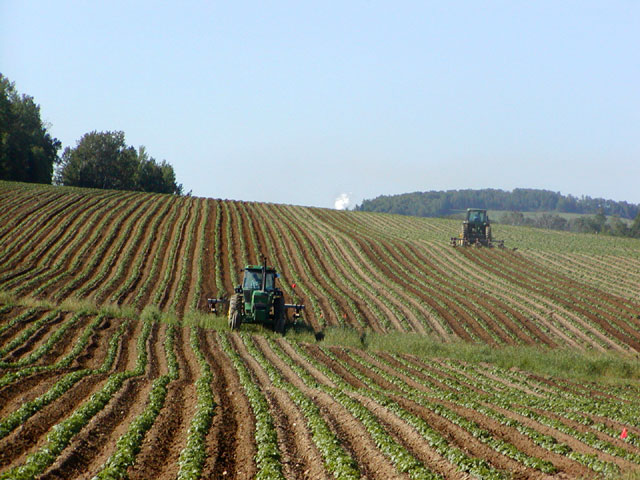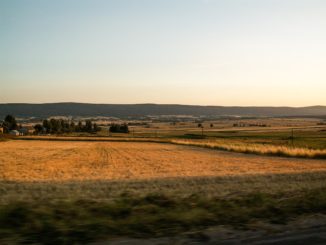(Brussels, 21/11/2013) The European Parliament held its final vote yesterday,Wednesday 20th November, on the Common Agricultural Policy (CAP). In voting as it did, Parliament has intensified the failure to deliver what was supposed to be a fairer, simpler and greener agriculture policy for Europe.

- photo: WikiCommons
”Business as usual has prevailed at 90%” said Benedikt Haerlin of NGO platform ARC2020.EU and Meine Landwirtschaft. “Unfortunately the role of the European Parliament had been to substantially cut back on the initial progress towards sustainability proposed by the European Commission. From 2014 to 2020 we will see at least as many farms being closed down within the European Union, organic farming will suffer financially, biodiversity will suffer even more and the role of the European Union in the world will continue to be a resource-sucker at the expense of the global poor and the environment.”
Importantly, all amendments, some of which could have improved the proposals, were dropped and not voted on. This democratically questionable move occurred due to a change in the voting order of the overall EU budget files, at the behest of the president of the European Parliament, Martin Schulz.
Five legislative acts were voted on, and with partial exception of the rural development vote, and the procedural transitional rules vote, business as usual rather than genuine reform was supported each time.
Votes were on direct payments (440 votes to 238, with 10 abstentions), rural development (576 votes to 101, with 11 abstentions), common market organisation (426 votes to 253, with eight abstentions), financing management and monitoring (500 votes to 177, with 10 abstentions), and finally transitional rules (592 votes to 81 votes, with 14 abstentions).
Failure: The financing management and monitoring vote (Horizontal Regulations) means there has been no strengthening of cross-compliance rules, rules which could have been used to protect biodiversity, water and carbon rich soils.
Failure: The Common Market Organisation vote means that food dumping in developing countries is still on the table, due to export refunds being retained as an option.
Failure: The Direct Payments vote has limited and delayed the ability of Member States to put a ceiling on, and more fairly distribute, payments. Massive transfers, or 15% and in some cases up to 25% of payments from Pillar 2 to Pillar 1 have been enabled. Supposed Ecological Focus Areas are also under threat: already 23 member states state that they want to use mineral fertilizers and pesticides in these areas.
Pass: The Rural Development vote means that member states at least have options to do the right thing in terms of agri-environment schemes and social cohesion in Europe’s countryside. However the Rural Development budget has already been cut disproportionately, so there will be less money to spend on these areas.
“While the new CAP is supposed to be greener, European policy makers have allowed pesticides use on Ecological Focus Areas. Therefore the legitimacy of greening is strongly affected, and European citizens still do not see what concrete progress has been achieved for environmental protection through this reform”, says Samuel Feret, ARC2020.EU′s Coordinator.
The big picture then in this CAP so-called reform process is one of exemptions and of compromises which seriously threaten the environment, sustainable farming and the socially fair potential of the CAP.
The European Commission now works on delegated and implementing acts. Both the Commission and the individual member states are where the focus must now turn, to save what can be saved in trying to make farming and food greener and fairer in the 2014-2020 period.




